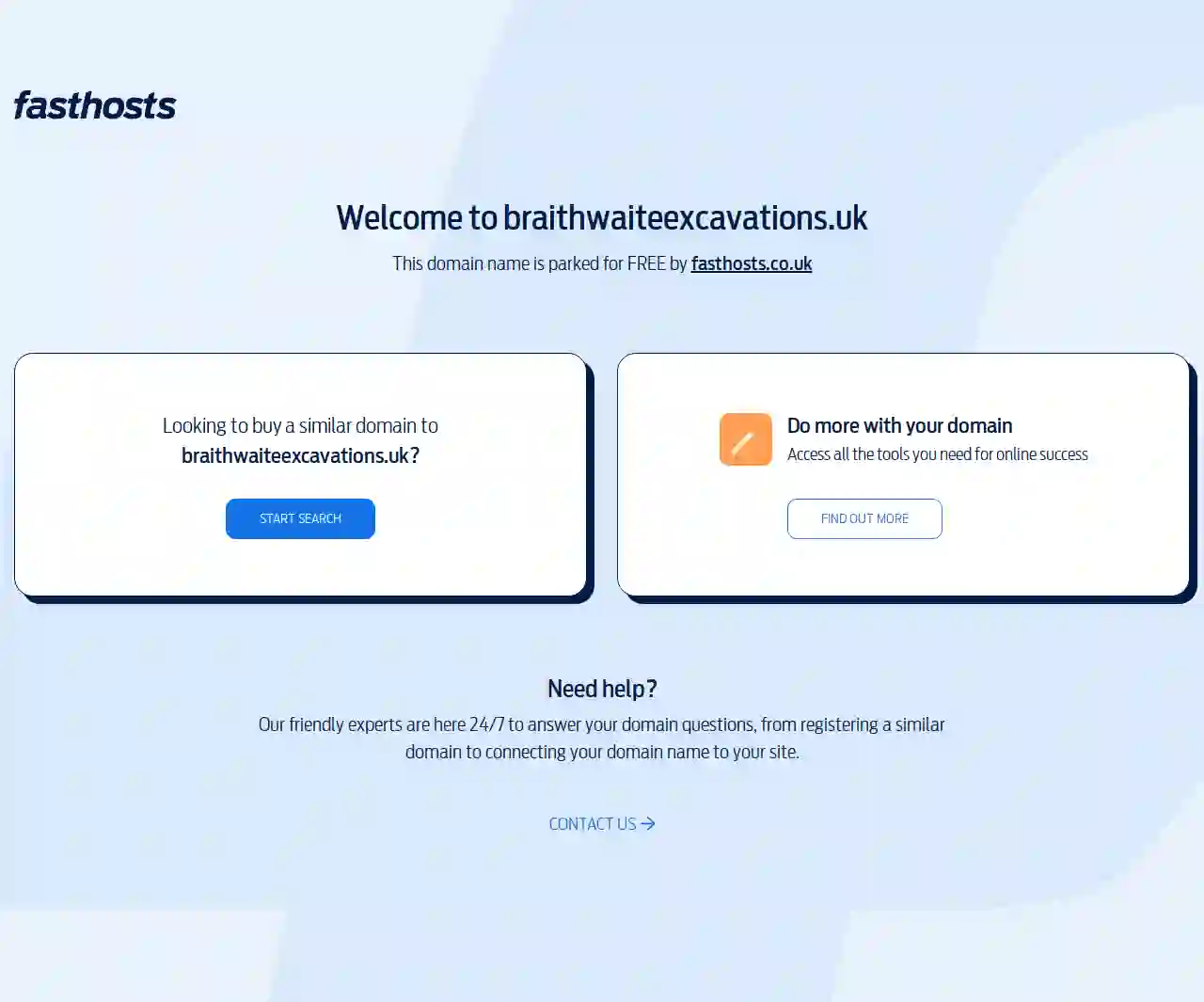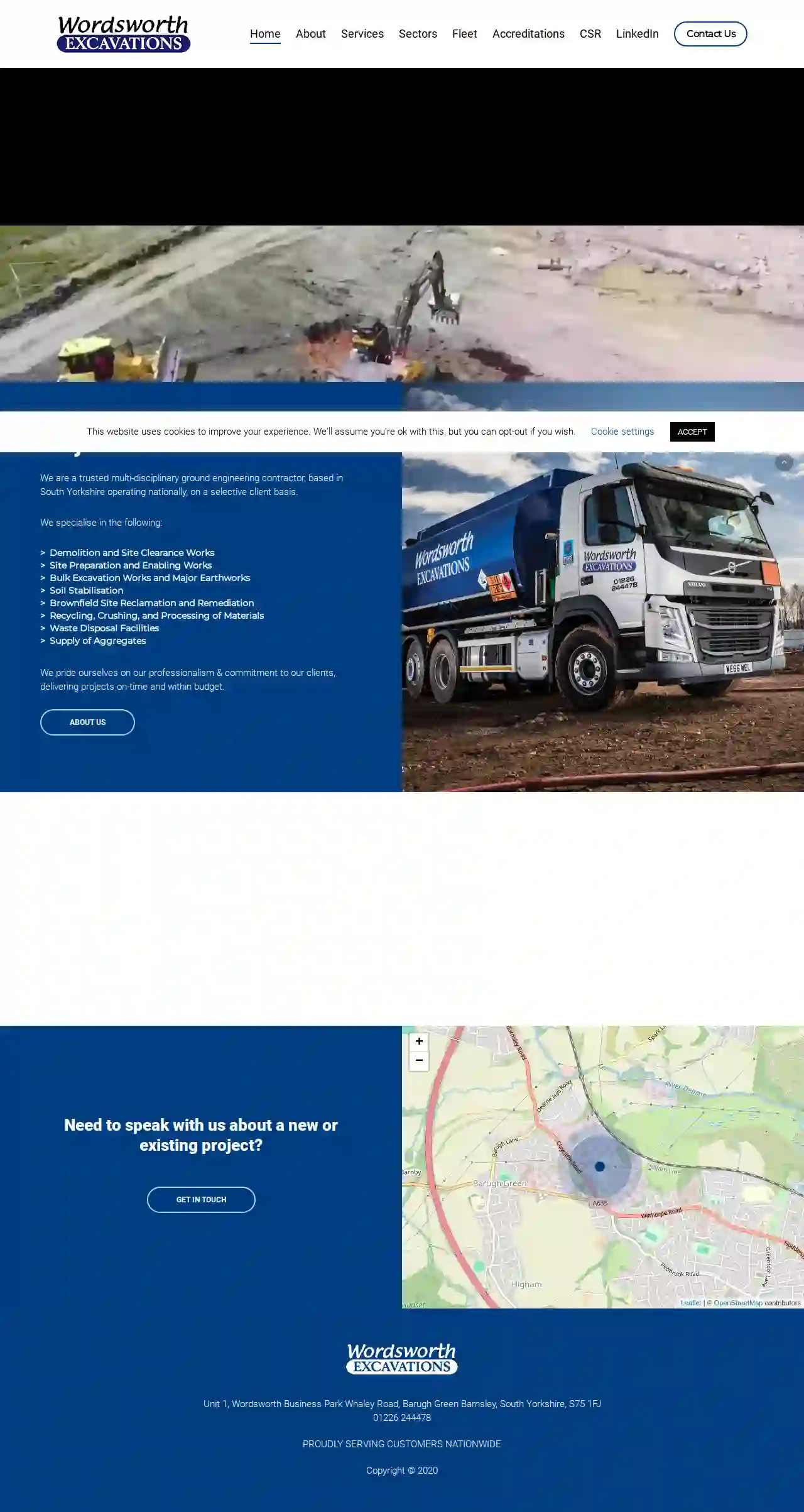Dirt Contractors Barnsley
Best Dirt Contractors in Barnsley
Get 3 FREE Dirt Contractors quotes for your project today! Compare profiles, reviews, accreditations, portfolio, etc... and choose the best service.

Kt Excavations Ltd
51 reviewsUnit 71, Albion Road, Carlton Ind Est, Carlton, Barnsley, S71 3HW, GBFrom Ground Up, We're Your Trusted Partner. Professional Excavations & Groundwork Services in Barnsley Welcome to KT Excavations, your dedicated partners in bringing your projects to life. With many years of industry experience, we've honed our craft to deliver unparalleled quality, precision, and reliability. We have a strong team of skilled professionals who will work with you from site preparation to foundation laying, and so much more. Our comprehensive suite of services is tailored to meet the unique needs of each project, ensuring optimal results every step of the way. Whether you're a homeowner embarking on a residential construction project or a commercial developer undertaking a large-scale endeavor, we will deliver exceptional results that stand the test of time.
- Services
- Why Us?
- Testimonials
- Gallery
Get Quote
Braithwaite Excavations & Demolitions Ltd
3.73 reviewsBarnsley, GBThis domain name is parked for FREE by fasthosts.co.uk. Looking to buy a similar domain? Start search. Do more with your domain. Access all the tools you need for online success. Find out more. Need help? Our friendly experts are here 24/7 to answer your domain questions, from registering a similar domain to connecting your domain name to your site. Contact us.
- Services
- Why Us?
- Gallery
Get Quote
Jakto Transport Ltd - Excavations, Demolitions and Groundworks
4.814 reviewsBarnsley, GB- Services
- Why Us?
Get Quote- G.
G.A.Siddons
4.25 reviewsBarnsley, GB- Services
- Why Us?
Get Quote - Ba
Barrett Excavation Ltd
56 reviewsBarnsley, GB- Services
- Why Us?
Get Quote 
Wordsworth Excavations
3.919 reviewsBarnsley, GB- Services
- Why Us?
Get Quote- Ee
Eezi Dig Groundworks & Excavations
51 reviewsBarnsley, GB- Services
- Why Us?
Get Quote - Og
Ogdens Excavation Ltd
52 reviewsBarnsley, GB- Services
- Why Us?
Get Quote
Over 13,059+ Excavation Pros on our directory
Our excavation contractors operate in Barnsley and surrounding areas!
ExcavationHQ has curated and vetted Top Excavation Companies in Barnsley. Find a top & reliable pro today.
Frequently Asked Questions About Dirt Contractors
- Efficiently Spread and Level Dirt: Using specialized equipment like bobcats or skid steers to ensure even distribution and proper compaction.
- Achieve Precise Grading: Following specific grades and contours for drainage or construction purposes.
- Handle Large Volumes of Dirt: Managing large deliveries and removals with dump trucks and other heavy machinery.
- Minimize Risks and Ensure Safety: Working safely and efficiently, reducing the potential for injuries or property damage.
How much dirt do I need for my project?
1. **Measure the area:** Determine the length, width, and depth (in feet) of the area where you need dirt.
2. **Calculate the volume:** Multiply the length x width x depth to get the volume in cubic feet.
3. **Convert to cubic yards:** Divide the cubic feet volume by 27 (there are 27 cubic feet in one cubic yard).
**Example:**
If your area is 10 feet long x 5 feet wide x 2 feet deep, the volume would be: 10 x 5 x 2 = 100 cubic feet
To convert to cubic yards: 100 / 27 = 3.7 cubic yards (round up to 4 cubic yards to ensure you have enough).
It's advisable to consult with a dirt contractor or landscaper for more accurate calculations, especially for complex projects or irregular-shaped areas.
What is the difference between dirt delivery and dirt removal?
Dirt Delivery: Involves transporting and delivering various types of dirt to your location. This could include topsoil for gardening, fill dirt for leveling ground, sand for construction projects, or gravel for driveways.
Dirt Removal: Focuses on excavating and hauling away excess dirt or soil from your property. This is often needed for construction projects, landscaping renovations, or when clearing land for other purposes.
Whether you need dirt brought in or taken out, choosing the right service is essential for your project's success.
Can I spread dirt myself, or should I hire a professional?
What is the difference between topsoil and fill dirt?
Topsoil: The uppermost layer of soil, characterized by its rich organic matter content, nutrients, and dark color. It's essential for supporting plant growth and is commonly used for gardening, landscaping, and lawn establishment.
Fill Dirt: Primarily composed of subsoil or excavated materials, generally lacking the organic matter and nutrients found in topsoil. It's typically less fertile and used for structural purposes, such as filling in low areas, leveling ground, or creating raised beds.
Understanding the difference between topsoil and fill dirt is crucial for choosing the appropriate soil type for your specific project needs.
How much dirt do I need for my project?
1. **Measure the area:** Determine the length, width, and depth (in feet) of the area where you need dirt.
2. **Calculate the volume:** Multiply the length x width x depth to get the volume in cubic feet.
3. **Convert to cubic yards:** Divide the cubic feet volume by 27 (there are 27 cubic feet in one cubic yard).
**Example:**
If your area is 10 feet long x 5 feet wide x 2 feet deep, the volume would be: 10 x 5 x 2 = 100 cubic feet
To convert to cubic yards: 100 / 27 = 3.7 cubic yards (round up to 4 cubic yards to ensure you have enough).
It's advisable to consult with a dirt contractor or landscaper for more accurate calculations, especially for complex projects or irregular-shaped areas.
What is the difference between dirt delivery and dirt removal?
Dirt Delivery: Involves transporting and delivering various types of dirt to your location. This could include topsoil for gardening, fill dirt for leveling ground, sand for construction projects, or gravel for driveways.
Dirt Removal: Focuses on excavating and hauling away excess dirt or soil from your property. This is often needed for construction projects, landscaping renovations, or when clearing land for other purposes.
Whether you need dirt brought in or taken out, choosing the right service is essential for your project's success.
Can I spread dirt myself, or should I hire a professional?
- Efficiently Spread and Level Dirt: Using specialized equipment like bobcats or skid steers to ensure even distribution and proper compaction.
- Achieve Precise Grading: Following specific grades and contours for drainage or construction purposes.
- Handle Large Volumes of Dirt: Managing large deliveries and removals with dump trucks and other heavy machinery.
- Minimize Risks and Ensure Safety: Working safely and efficiently, reducing the potential for injuries or property damage.
What is the difference between topsoil and fill dirt?
Topsoil: The uppermost layer of soil, characterized by its rich organic matter content, nutrients, and dark color. It's essential for supporting plant growth and is commonly used for gardening, landscaping, and lawn establishment.
Fill Dirt: Primarily composed of subsoil or excavated materials, generally lacking the organic matter and nutrients found in topsoil. It's typically less fertile and used for structural purposes, such as filling in low areas, leveling ground, or creating raised beds.
Understanding the difference between topsoil and fill dirt is crucial for choosing the appropriate soil type for your specific project needs.